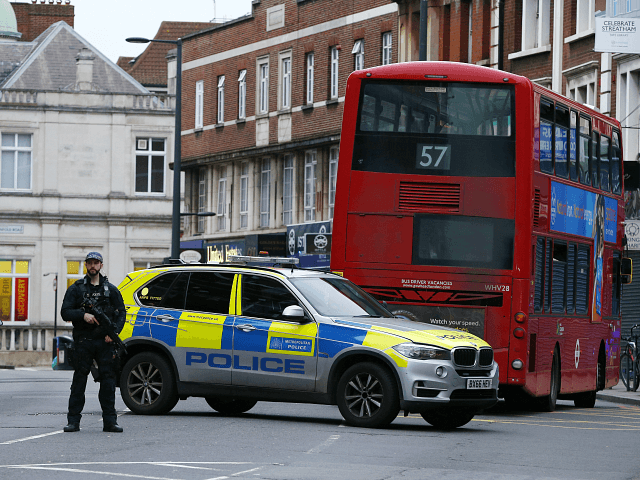Over seven in ten Britons back Prime Minister Boris Johnson’s plan to end the automatic early release of convicted terrorists.
In the wake of the terrorist attack in Streatham, London, the government is set to end the automatic release of terrorists from prison, replacing the current system with a law that would require terrorists to serve at least two-thirds of their sentence and be subject to a review by a parole board before being released.
A poll conducted by YouGov of 3,175 Britons found that 73 per cent — almost three quarters in all — of those surveyed supported the measure, compared to just 12 per cent who opposed it and 15 per cent who said that they were undecided.
Sudesh Amman, the Islamist terrorist who stabbed two people in Streatham, London, and the London Bridge attacker, Usman Khan, who killed two people in November, were both released early from prison without review by a parole board. Amman launched his attack just days after going free.
The new law would retroactively apply to 220 imprisoned terrorists, ten of whom are set to be released this month, according to The Times.
UK: Streatham Knifeman Named as Sudesh Amman, Was a Convicted Terrorist Released from Prison Early https://t.co/LMCFUgDq8y
— Breitbart London (@BreitbartLondon) February 2, 2020
In order to avoid legal challenges from terrorists denied freedom, the United Kingdom might apply for a “derogation” of the rules set out in the European Convention on Human Rights. The European Convention on Human Rights is enforced by the European Court of Human Rights, which is a body of the Council of Europe.
While the Council of Europe is not a part of the European Union, member-states are expected to abide by the Convention. Despite the UK leaving the EU, the country is still bound by it.
The UK’s derogation from the Convention could be accomplished by merely explaining the rationale to the Council of Europe, yet it could face legal challenges.
The move would not be without precedent, however, as several countries have successfully derogated from the act, including the UK, which scrapped the law for “the most violent terrorist campaign witnessed in either part of the island of Ireland” during the IRA Troubles of the 1970s and 1980s.
The European Court of Human Rights has been a main point of contention for the pro-sovereignty Brexit movement in the United Kingdom, as it is seen as an impediment to Britons governing themselves rather than being forced to accept rulings by European bodies.
The claim is not unfounded as the Human Rights Act, which ensures that the European Convention on Human Rights is enshrined in British law, has been successfully used by dozens of convicted terrorists to avoid deportation and remain in the United Kingdom.
In 2017 Breitbart London reported that Siraj Yassin Abdullah Ali, who aided in the failed 21/7 bomb plot in 2005, was able to avoid deportation. His lawyers, using the HRA as precedent, argued that he would be subject to “inhumane treatment or punishment” should he be deported to his home country of Eritrea. Ali was released early from prison in 2011, after only serving half of his nine-year sentence.
London Bridge killer Usman Khan was a convicted terrorist released from prison after judges changed his "public protection" sentence. Public protection sentences were scrapped by the Tories and deemed unlawful in a European court ruling. https://t.co/p5wfe2BhUK
— Breitbart London (@BreitbartLondon) November 30, 2019
Follow Kurt on Twitter at @KurtZindulka

COMMENTS
Please let us know if you're having issues with commenting.